Italy's far-right threat has vanished, but a familiar dread returns as Meloni settles into office
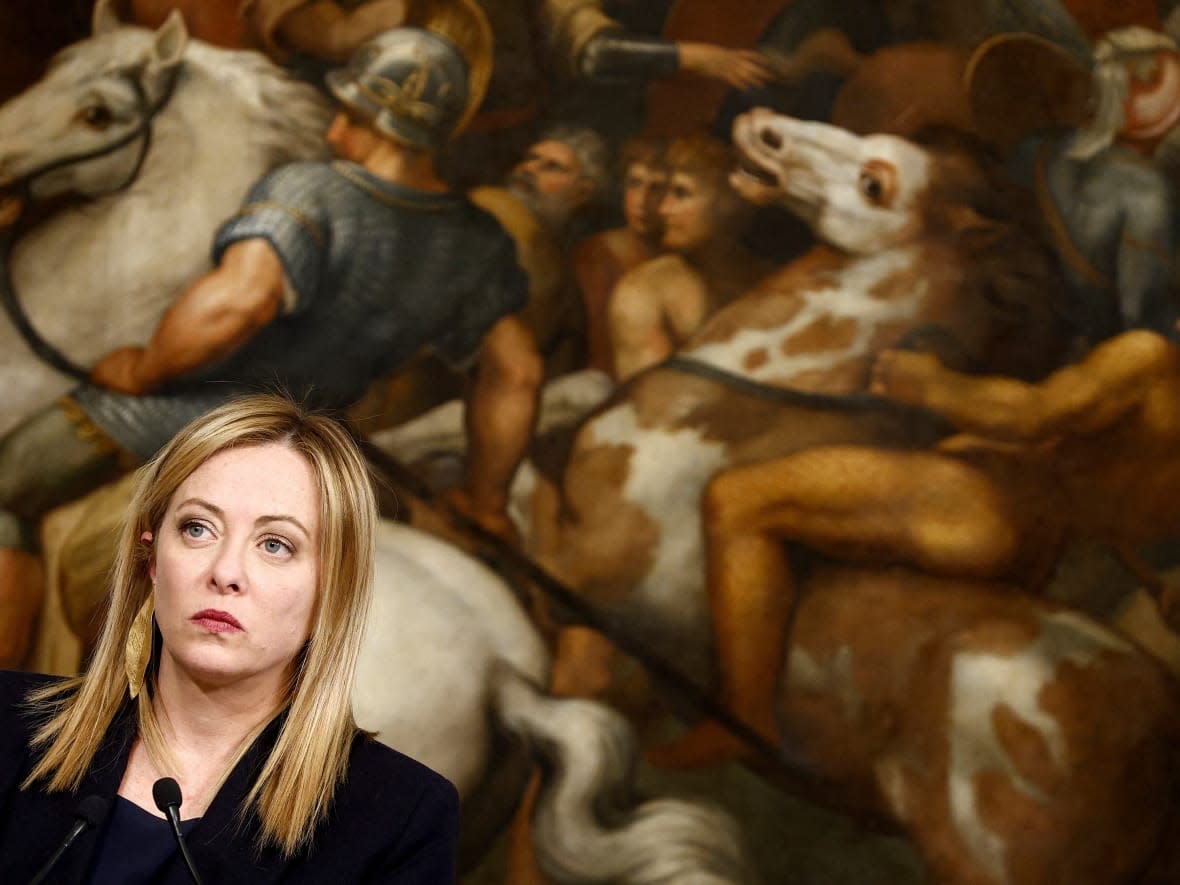
After Italian Prime Minister Giorgia Meloni won the national election last September, many expressed alarm that the leader of the once outlier Brothers of Italy, a party with neo-fascist origins, would wrench the country sharply to the right.
As she reached the first 100 days of her mandate this past week, though, those fears have all but evaporated, replaced instead by a familiar dread that the 46-year-old first-time prime minister is steering Italy along the exact same course as almost all other leaders have in the past three decades: a slow, steady descent downhill.
The country suffers from low productivity and meagre salaries; is tied up in cumbersome red tape and under-invested in research; has no real immigration plan and is ever increasingly drained of its most promising young people, with 1.2 million young Italians now working abroad for better opportunities.
"What Italy needs now are ideas," said Nathalie Tocci, an Italian political scientist and director of Istituto Affari Internazionali, the Rome-based International Affairs Institute. "And there aren't any."
Low expectations for Meloni
Meloni was elected after a brief technical government led by the well-respected former EU banker Mario Draghi. Many Italians had pinned their hopes on him to turn the country around.
Compared to expectations of Meloni so low they bordered on catastrophic, Tocci said, she has performed well as prime minister so far.
During last fall's election campaign, Meloni delivered fiery denunciations against political correctness and "LGBT lobbies," expressed zero tolerance for migrants crossing the Mediterranean Sea and mocked the European Union, whom she'd long dismissed as useless, for fearing her.
Yet already in the early hours of the morning following her election victory, a tone-downed Meloni took the stage: sombre, serious, looking more spooked than celebratory.
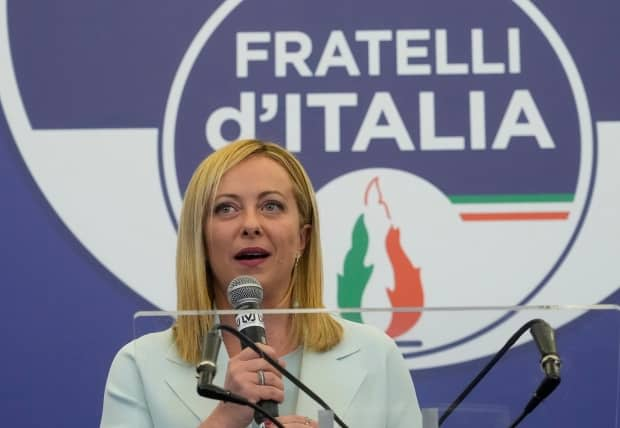
That sobriety, along with a series of compromises, have marked her first three months in power.
The once Eurosceptic notably made Brussels her first foreign visit to reassure European Commission Ursula von der Leyen that Italy under her guidance would make good on its pledges for reform laid out by the previous government led by Draghi.
The new interior minister, Matteo Piantedosi, passed a decree requiring the ships to sail directly to port rather than remain at sea looking for other migrant boats in distress, though Meloni's government backed down from a total ban on NGO migrant rescue ships docking here after a standoff with France.
'This is a clearly a right-wing government'
She raised the legal limit of cash transactions from 2,000 to 5,000 euros (about $5,000 to $7,000 Cdn, but backed down on an electoral promise to loosen restrictions for merchants to accept electronic payment, a concession to the EU and others who said it would be a major step back in Italy's fight against tax evasion.
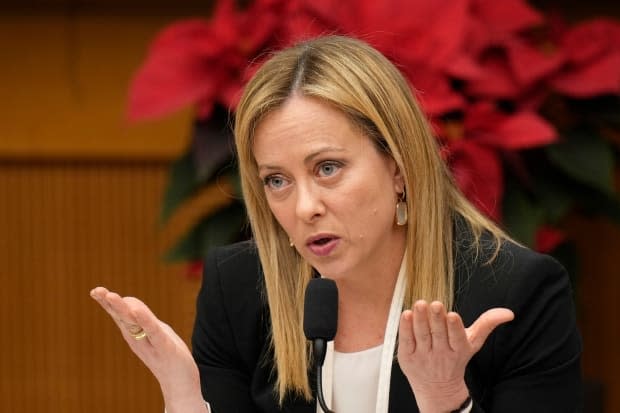
And while her trademark plain-speaking confidence wavered when questioned about details of Italy's economic policy during her year-end press conference, she's been steady enough at the helm that the spread between the Italian and German 10-year government bonds, a key confidence indicator in Italy's ability to service its debts, has shrunk from 2.3 to about 1.8.
In the wake of Russia's invasion of Ukraine last year, she has been an unfaltering supporter of NATO and Ukraine, in words at least — Italy has few arms to offer.
"This is a clearly a right-wing government," when it comes to economic, security and migration policies, said Cecilia Emma Sottilotta, a political expert at the University of Perugia.
But, she says, compared to Meloni's coalition partner, The League party leader Matteo Salvini, Meloni is far more adept at politics.
"She doesn't raise the stakes and go looking for head-on collisions on issues like migration, but avoids them."
It's now commonplace to hear people who say they would never vote for Meloni also express open admiration for her.
"I like the fact that she's made it completely on her own," said Alessandro Caleffi, a Roman dentist who says he has always voted centre-left.
"She's dropped all that odious campaign propaganda and is transforming herself into a statesman, a stateswoman. It's also magnificent she's keeping detestable people like Salvini and [Silvio] Berlusconi in their place."
The sentiment has begun to be reflected in the polls.
Rising popularity
Meloni's popularity has shot to above 30 per cent from the 26 per cent she and her party garnered in fall elections, albeit with an historically low turnout. Support for Salvini and Berlusconi, on the other hand, has withered.
Meloni can call the shots among her allies and faces virtually no opposition.
"Things have been good for her so far," said Tocci. "But the million-dollar question is, what will happen when they're not."
In the meantime, observers say, without a radical movement toward modernization, the country is destined to further decline.
The elephant in every decision-making room is a debt approaching 150 per cent of its GDP — the third most burdensome of developed nations, just behind Greece and Japan. European Central Bank plans to raise interest rates and reduce its bond-buying program that has helped Italy will only make the debt more difficult to manage.
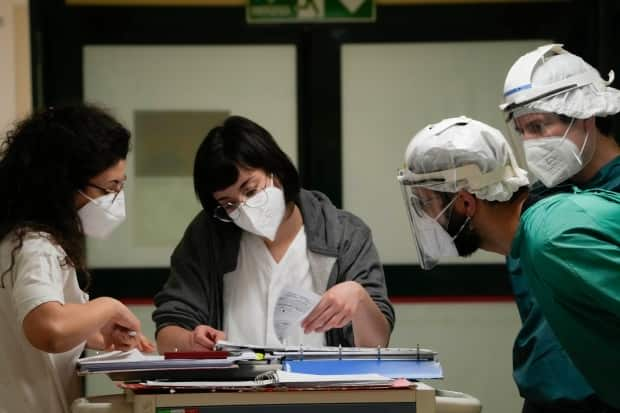
As the first and one of the hardest hit countries in Europe by the COVID-19 pandemic, Italy is the largest recipient of EU Recovery and Resilience Funds — some 190 billion euros ($275 billion Cdn) in grants and loans. But the funds come with strict dictates on how it can be spent – from digitalization and innovation to renewable energy and travel infrastructure — with Meloni already complaining the money is not enough.
Yet what's really missing, say observers, is a political class with enough competence, vision and guts to carry out the reforms the country needs to grow and keep future generations from leaving.
"Meloni is probably much more intelligent than most Italian politicians," said Sottilotta. "But that's not enough. There's a problem with the people who surround her."
Italy's political structure an issue
The most recent example is the Meloni-appointed Deputy Justice Minister Giovanni Donzelli. In a tirade against the opposition in parliament last week, he revealed classified information obtained through secret taping of prisoners.
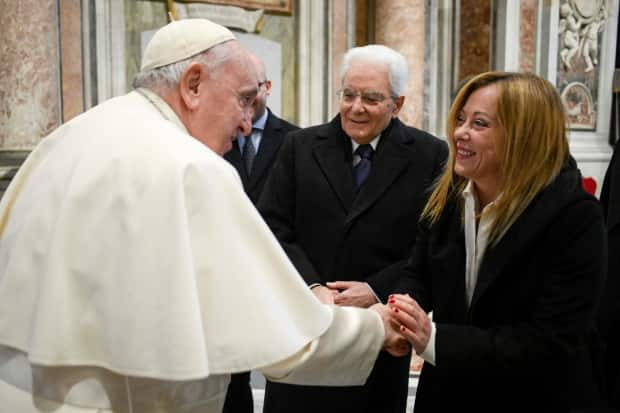
Multiple calls for his resignation have gone ignored.
A top-down electoral system in which political parties have a tight grip on who runs for office means there's scarce political accountability of the kind that can drive political change, according to political expert Sottilotta.
"It's not a question of this government, but a question of the structural decline of this country — economic, cultural, technological, international," Tocci said. "Why were we all in love with Draghi? Because we thought, maybe we'll finally reverse the trend.
"But he was an exception, and we're back to the trend."


